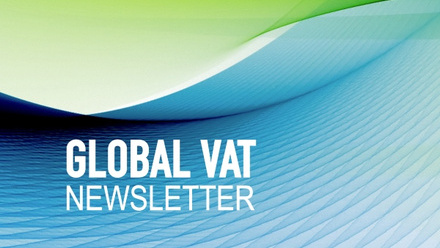Latest Global VAT Specialist Group Newsletter takes a look at the new proposed Polish e-invoicing project
In our latest Global VAT Specialist Group Newsletter, Tomasz Modzelewski from MGI Modzelewski in Warsaw, Poland, takes a look at the new proposed Polish e-invoicing project.
On September 9th, the Polish government proposed a new e-invoicing project. The proposed law is the first step of the legislative procedure, yet the chances of its implementation (starting 2022) are quite high.
According to press reports, the Polish model will be based on/inspired by the Italian one. As invoicing is a universal issue, such change would affect most firms active on the Polish market. Listed below are the most important aspects of the project:
- Project submitted to the Polish Parliament on September 9th, 2021 (print no. 1547).
- The bill is to enter into force on 1st of January 2022.
- The use of e-invoices is to be optional.
- The Polish e-invoice system is to be modelled on the Italian solution (according to press reports).
- E-invoices will be prepared directly in the taxpayer's financial and accounting software and sent to the National System of E-invoices (Polish name: KSeF), a centralised government platform.
- The date of issue of an e-invoice will be the date on which it is uploaded to KSeF and assigned an ID in the system. This means that e-invoices will have to be uploaded to KSeF on an ongoing basis.
- According to press reports, e-invoices were to be mandatory from 2023. However, the explanatory notes to the project assume a gradual implementation of the new solution. It is expected that in 2022 ca. 10% of VAT payers will be using e-invoices. In 2028, the value is expected to be 70%.
- Taxpayers who issue e-invoices will be entitled to a shorter (from 60 to 40 days) VAT refund period.

- Receiving e-invoices will require the acceptance of the recipient of such invoice. In the absence of such approval, it will be possible to issue an e-invoice in the KSeF-system and then send it to the recipient in a traditional form, e.g. in paper form (the system is to allow converting the invoice to a pdf file). Such an invoice will continue to have the valour of an e-invoice.
- Corrections to e-invoices will also be issued using KSeF.
- The e-invoice will be deemed received by the recipient once KSeF has assigned it an ID-number in the system. Provided that he has previously agreed to receive invoices in this form.
- E-invoices are to include the standard obligatory elements (just like it is today). Additionally, they are to include the identification number in the KSeF-system.
- E-invoices will be stored permanently (in the system) for 10 years.
For further information regarding the Polish E-Invoicing Project contact Tomasz Modzelewski at [email protected].
For more information about the Global VAT Service Group, please contact a member of the operational team:


MGI Worldwide with CPAAI, is a top 20 ranked global accounting network and association with almost 10,000 professionals, accountants and tax experts in some 460 locations in over 100 countries around the world.





